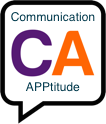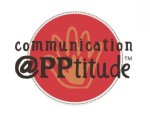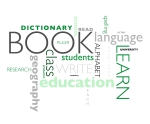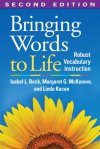 Beth Lawrence, MA, CCC-SLP[/caption]
Beth Lawrence, MA, CCC-SLP[/caption]Borrowing a page from Dr. Mel Levine's "The Mind That's Mine" and Maria Garcia Winner's "Superflex" curriculum, I've been using the terms, "Vacation Brain" and "Focused Brain" in working with some of my students on active listening skills and language-mediated problem-solving. We all need to focus and to take brain breaks at different times. Being able to flexibly switch from one state to another is important. The person who cannot turn his "Active Brain" off at night can have significant difficulty falling asleep. But, for the person who is unaware that listening involves active participation and constant self-talk for monitoring oneself, this frank discussion can open up a world of awareness and metacognition.
I work with many students on my caseload who really struggle with reading and listening comprehension, remembering steps of directions, holding onto all the steps needed to solve a math word problem and simply keeping up with conversation. For many, teaching these strategies to improve reading comprehension and working memory is enough, and the students eventually learn to spontaneously apply the skills to new situations. However, a few of them learn the techniques and memory strategies, but shift into "vacation mode" while in class, or even in our one-on-one sessions because they are unaware that there needs to be a distinct effort made. Diagnosed with ADHD or not, this awareness and practice with self-identification of their brain-state has been very helpful for these few students.

Starting with a frank discussion (and drawings of the brain and frontal lobe activation) of what is happening when someone is using language to monitor, comprehend and keep track of steps, students are introduced to the idea of Vacation Brain and Active Brain. I role model what my brain is "saying" inside when it is actively engaged in a reading comprehension task (e.g., "I can't believe Bob is going to open the door, doesn't he know the robber is in there? Be careful, Bob!") or while doing a math word problem (e.g., "Okay, so I know that the candy costs 25 cents each, 25 cents for each candy, okay, and I want 5, so that's five at 25 cents. Okay, I'm gunna write that down, 25 cents times 5 equals....") I then demonstrate the same comprehension and word problem activities while being overtly "quiet" (failing to "engage" my brain.) The student sees and hears this, and I point out how easy it was to switch to "Vacation Brain", which was obvious in my eyes and on my face (vacant look).
I then have the students actively engage in these types of activities, prompting them with the kinds of things they could say to themselves. They practice saying these utterances aloud, and I point out how alert and awake their faces appear. Sometimes I provide them with a mirror or videotape them using my iPad so they can see what "active engagement" looks like. I label this behavior, "Active Brain" and point out that they are really comprehending the story/on the right track with the math word problem and that their frontal lobes are activated. Once they practice this and we role play what "Vacation Brain" looks like,
 and how hard it is to answer comprehension questions when we read in this state, we now have a label for a desired behavior that can be used throughout our therapy sessions. Parents can follow through with these labels as well.
and how hard it is to answer comprehension questions when we read in this state, we now have a label for a desired behavior that can be used throughout our therapy sessions. Parents can follow through with these labels as well.Metacognition is so important! Students need to learn about it in an overt way so that they know what is happening inside the minds of good and active listeners. Without this overt discussion and practice, I don't believe these students would have made the progress that they have made in speech-language therapy.






